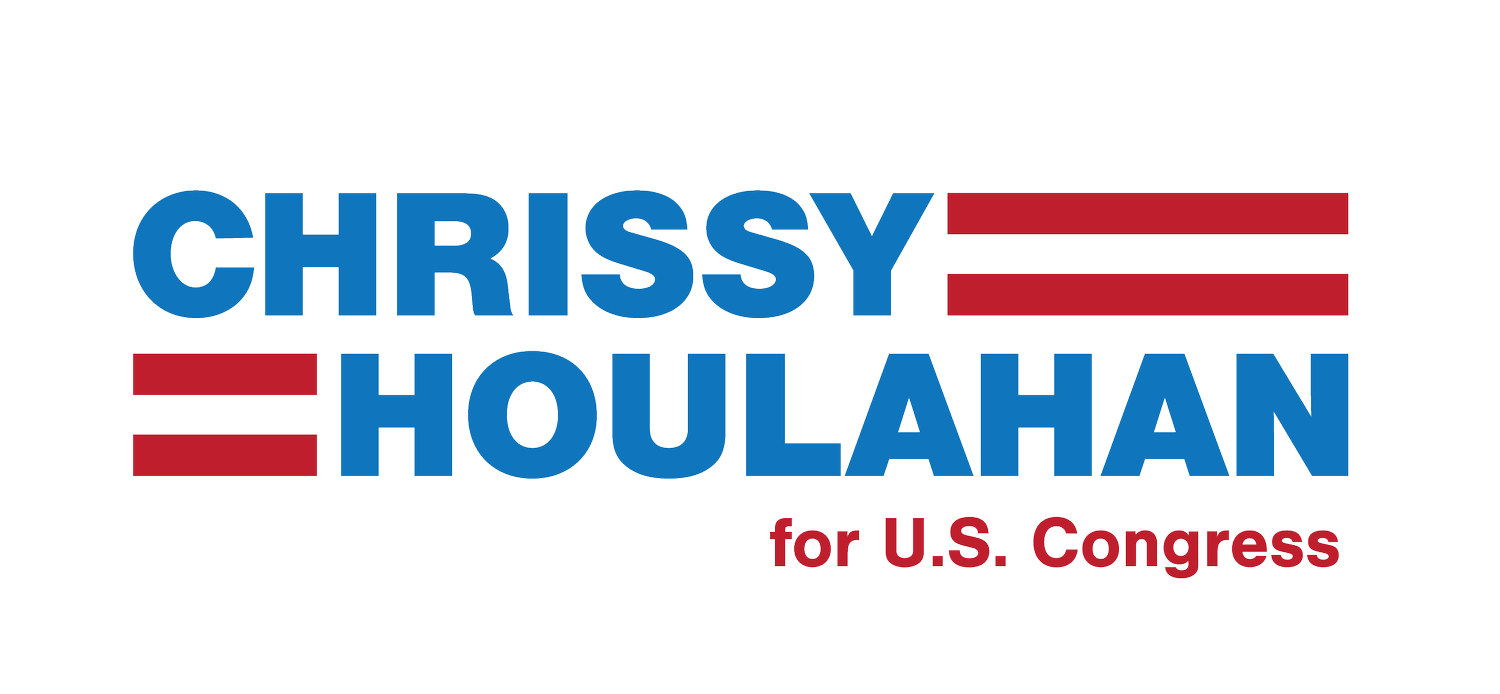Reading Eagle, 10/9/20- Federal lawmakers representing Berks County focus on coronavirus issues at Greater Reading Chamber Alliance forum
By Karen Shuey
It's not what they expected.
When freshman lawmakers Dan Meuser, Chrissy Houlahan and Madeleine Dean were elected in 2018 to serve in Congress they had no clue they would take office in the middle of a government shutdown, they could have never guessed they would find themselves involved in a bitter presidential impeachment fight and they would have never predicted a global health crisis would threaten the lives and livelihoods of so many Americans.
But all of that has happened.
They have made it through those first two challenges and said Friday that they will continue to fight through the third. The way the federal government is responding to the coronavirus pandemic took center stage at the annual congressional breakfast hosted by the Greater Reading Chamber Alliance.
The members of Congress who represent Berks County from both sides of the aisle spoke proudly about the steps Congress already has taken to address the crisis. That included passing a sweeping $2 trillion measure in March that took remarkable bipartisan cooperation and expedited legislative work to provide temporary relief for households and businesses reeling from the sudden economic downturn.
"I was very pleased that our Congress, in a remarkably bipartisan way, tackled the issue of a global pandemic as well as an economic paralysis very quickly," said Dean, a Montgomery County Democrat who represents a small portion of Berks. "It was nice to partner with Dan and Chrissy on important legislation to drive resources to individuals, to families and to businesses of all sizes."
The CARES Act was unparalleled in its scope and size.
It sent direct payments of $1,200 to individuals earning less than $75,000. It substantially expanded unemployment benefits. It suspended all federal student loan payments for six months. It sent funds to states and local governments to help buy things like personal protective equipment, to provide rental assistance for those struggling financially and to establish testing and contact tracing programs.
For companies struggling under the strain of the crisis, the measure provided $350 billion in federally guaranteed loans to small businesses and established a $500 billion government lending program for distressed companies.
It also sent $100 billion to hospitals on the front lines.
"The work that we did during the COVID crisis was done in a bipartisan way and it was effective," said Meuser, a Luzerne County Republican who represents communities in western and northern Berks. "We were able to show that it is still possible to get things done."
But all the legislators agreed that more work needs to be done.
They said they continue to hear from community leaders and businesses owners about the challenges they are facing during this difficult time and that they understand they must take action on an additional round of federal money to prop up the coronavirus-ravaged economy. How to provide that financial assistance has been the hard part.
Houlahan and Dean were supporters of the Heroes Act, a $3 trillion package that would have sent aid to struggling state and local governments, another round of bolstered unemployment benefits and additional direct payments to Americans. A divided House narrowly passed the legislation in May, with Meuser siding with his Republican colleagues against the measure, and was sent to the Senate where it has languished in the face of strong Republican opposition.
There was some optimism, however, that a compromise could be struck.
For the past several months, top Democrats and the White House have been trying to reach an agreement on a second stimulus package. But this week President Donald Trump instructed his representatives to stop negotiating with Democrats until after the election, leaving rank-and-file lawmakers in both parties increasingly concerned about delivering another recovery package for their struggling constituents.
"Sadly, just two days ago the president pulled the rug out from under those negotiations," Dean said. "I think that's the wrong way to go because families and businesses are hurting. We do not have our arms around this pandemic, so I hope that we will get back to the negotiating table before this election to deal with this pain and suffering."
Meuser and Houlahan are hoping to restart negotiations as well.
As members of the bipartisan House Problem Solvers Caucus, the two legislators are hoping leaders of both parties will consider getting behind a proposal that they believe strikes a balance between the Republican and Democratic positions. The measure would allocate at least $1.5 trillion in new money in addition to repurposing $130 billion from previous legislation and building in $400 billion in automatic triggers that would extend unemployment benefits and provide for another round of stimulus checks if the economy remains sluggish in January.
"We need to work in a bipartisan way to devise a relief plan that can get to the president's desk for signature," said Houlahan, a Chester County Democrat who represents Reading and many southwestern communities in Berks. "We have suggested a compromise that has elements that could be ratcheted up or ratcheted down depending on how the economy is doing."
Houlahan said she is proud of the work that went into drafting that legislation and is hoping it serves as a signal to Democrats and the White House that there is common ground to be found.
"I still have hope that we will be able to come to some compromise," she said. "If there was ever a time to do that, it would be now because lives and businesses literally depend on it."
